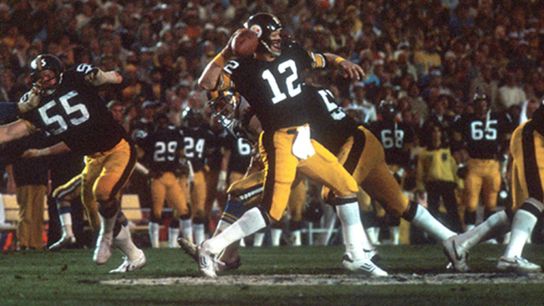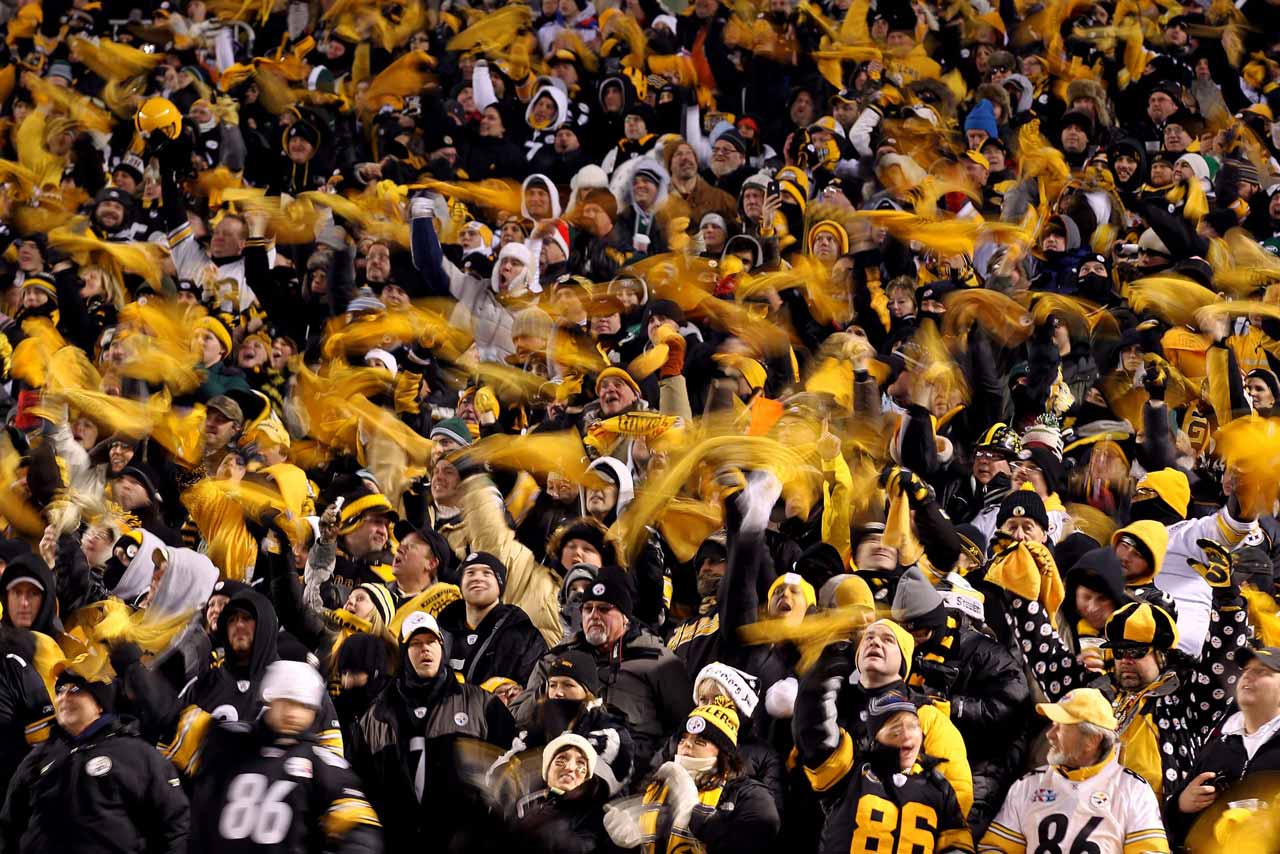Prior to the start of the 1970's, the Pittsburgh Steelers were considered a bottom dweller in the NFL. They had been through multiple head coaches during the 1960's and amassed a measly record of 46-85-7 during the decade. They failed to make the playoffs once over the 10-year span and after firing Bill Austin at the conclusion of the 1968 season, owner Art Rooney Sr. was ready for a change.
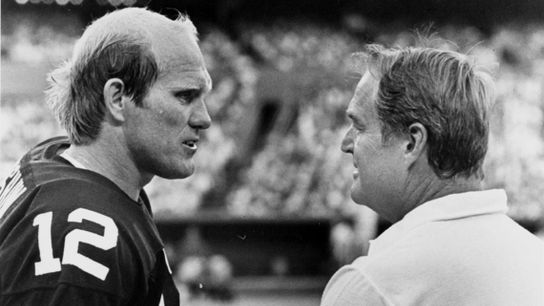
Pittsburgh Post Gazette Archives
Steelers long-time quarterback Terry Bradshaw (12) talks with head coach Chuck Noll during a game.
Steelers' owner ready for change
The first change Rooney Sr. wanted to make was to bring in a new head coach. Reports swirled that Rooney had offered Penn State Head Coach Joe Paterno over $70,000 per year to leave college, but Paterno turned his offer down. The Steelers shifted their focus to Chuck Noll, the defensive assistant for the Baltimore Colts. Noll, who was only 37 at the time, had never held a head coaching position before, but he had led the Colts to the Super Bowl behind one of the best defenses in the league. The Steelers interviewed Noll during the 1968 offseason and ended up signing the guy who would turn the franchise around.
Noll did not experience immediate success. He took over a roster that lacked talent and he quickly made changes. Noll ended up revamping the roster prior to the start of the season and that started with the 1969 NFL draft. The Steelers, who had finished the season with a record of 2-11-1, held the fourth overall selection in the draft. The Steelers made arguably the greatest selection in team history with that pick and selected Joe Greene. Greene, Noll's first selection as a head coach, would go on to make 10 Pro Bowls, win two Defensive Player of the Year awards, win four Super Bowls and make the Hall of Fame as one of the greatest defensive players to ever live.
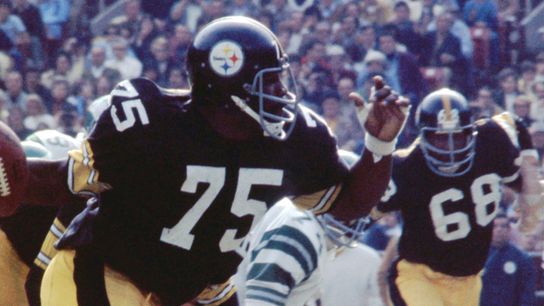
Associated Press
“Mean” Joe Greene was a cornerstone of the Steelers "Steel Curtain" defense and a team that became a dynasty in the ’70's.
Even with Greene on the roster, Noll's first season with the Steelers was less than memorable. The team won their first game of Noll's tenure, but proceeded to lose the next 13 and finished tied for the worst record in the league. At that point in time, there was no tie-breaker for teams that finished with the same record. If two or more teams finished with identical records, then they would simply flip a coin to determine draft order. At the conclusion of the season, the Steelers were tied with the Chicago Bears for the worst record in the league at 1-13. The fate of the first overall pick in the 1970 NFL draft would be decided by a coin flip.
One name was sitting atop all the draft boards prior to the 1970 NFL Draft - Terry Bradshaw. Bradshaw was the quarterback at Louisiana Tech and had taken the country by storm during his junior season. He led the country in passing and was touted as one of the best prospects in college football. During his senior campaign, Bradshaw picked up where he left off and led Tech to their first bowl game ever where he would win MVP of the game. Bradshaw once again led the country in passing and total yards and was the consensus number one pick in the upcoming draft.
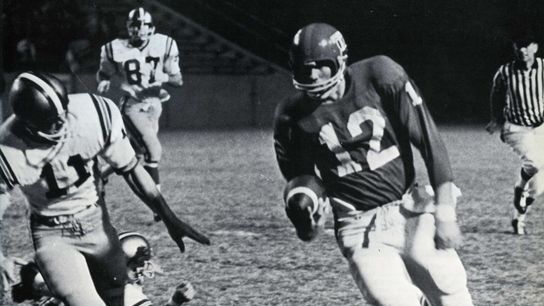
latechsports.com
Steelers QB Terry Bradshaw in Grantland Rice Bowl during his senior season. Bradshaw would go on to win MVP of the game in a 33-13 win.
According to Behind the Scenes with the Pittsburgh Steelers at the NFL Draft by Jim Wexell, the Bears were three-point favorites to win the coin toss. Wexell reports that Rooney Sr. never called a coin flip first and instead prompted the representative of the Bears to call it. The Bears chose heads and the coin fell on the floor showing tails. Rooney Sr. kept the coin and gave it to Noll at dinner that night and told him it was the beginning of good things to come.
The Steelers reportedly fielded 18 different offers for the rights to the first overall pick, but they elected to stay put and draft Bradshaw. Bradshaw would quarterback the team through the 1970's dynasty that saw them win four Lombardi Trophies and create an excellence in Pittsburgh that has carried over for over 50 years. I guess the old cliche of "tails never fails" rings true. Who's to say what the franchise would look like if the Steelers had never won that coin toss in 1969.

